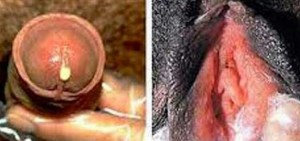The Symptoms and Signs of Gonorrhoea including Treatment
Gonorrhea, colloquially known as ‘the clap’, is one of the most common and oldest sexually transmitted infection known to mankind.
It is caused by the bacterium Neisseria gonorrheae. It is spread during sexual intercourse and occasionally from mother to the newborn during delivery.
Gonorrhea primarily affects the cervix, urethra, rectum, and eyes. If untreated, it can spread to other parts of the body.
Highest among young adults between the ages of 15-24 years in females and 20-29 years in males.
Mode of spread
It can be contracted if someone has sexual intercourse (vaginal, oral, or anal) with an infected individual. It can also spread vertically from an infected mother to her newborn during child delivery. Rarely, it can also be transferred from the genitals to the eyes by contaminated fingers.
Spreads more effectively from males to females. The risk of transmission from an infected male to a female is about 50-70%, whereas it is just about 20% the other way round.
Risk factors
Unprotected sexual contact with an infected person
Multiple sexual partners
Male homosexuality
Coexisting sexually transmitted infections
Human immunodeficiency virus
Being a sex worker
Poverty
Illiteracy
Symptoms and Signs of Gonorrhea
Symptoms usually manifest within 2-10 days of infection. Females are often asymptomatic while males are commonly symptomatic.
In Females
Vaginal discharge
Burning sensation while urinating (dysuria)
Bleeding in between periods
When infection ascends, it may also produce dyspareunia (pain during sex), lower abdominal
pain or back pain.

In Males
Discharge from the penis tip which is initially scanty and thin but later becomes profuse and purulent over few days.
Burning sensation when passing urine
Occasionally, testicular pain in ascending infection.
Treatment
Antibiotics in various combinations is the mainstay of treatment in uncomplicated gonorrhea. Spouses or sexual partners also need to be treated.
It is noteworthy to know that individuals who are being treated for gonorrhea should not engage in any form of sexual practice for 7 days after starting the antibiotics to avoid re-infection.
Complications
If left untreated or poorly treated, gonorrhea can cause other problems as the infection spreads to other areas of the body. Some of the problems that can arise include:
Chronic pelvic pain
Ectopic pregnancy (pregnancy outside the womb)
Testicular pain and infections
Infertility
Rarely, the infection gets into the bloodstream and spreads to distant areas of the body such as the skin, eyes, and joints.
Untreated gonorrhea also increases the chance of contracting HIV.
Prevention
Abstinence from sexual intercourse
Proper use of condoms
Having a committed sexual partner
























